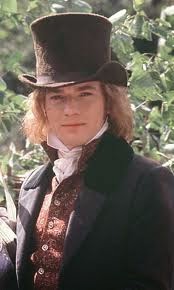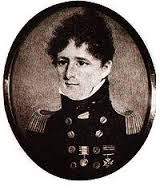 When Frank Churchill rides off to town to buy Miss Fairfax a piano, he claims to have gone for a haircut. Emma consequently thinks Frank very frivolous. I propose that this is not simply because of the long ride in the summer heat, but because the road between Highbury and London would have contained numerous tolls, resulting in frivolous expense as well.
When Frank Churchill rides off to town to buy Miss Fairfax a piano, he claims to have gone for a haircut. Emma consequently thinks Frank very frivolous. I propose that this is not simply because of the long ride in the summer heat, but because the road between Highbury and London would have contained numerous tolls, resulting in frivolous expense as well.Tolls were one of the factors that made travel so expensive. The tolls were collected and used by Turnpike Trusts who were created by legislation and who maintained the roads.
You had to pay the toll regardless of whether you were walking or riding a horse or driving a carriage, though various fees applied. It cost more to drive a carriage with narrow wheels, for example, because this caused more damage to the roads. I am not sure if walkers in the countryside had to pay at all turnpikes, but I have been told that they did in town.
 The idea of the toll road, or turnpike, came into being around the mid 1700s when traffic on highways started increasing and it became too difficult for parishes to maintain them. The word turnpike describes the spikes that could be erected at the toll gate by turning a wheel, to prevent people from crossing. Turnpike trusts had to erect signs, often in the form of a painted or engraved rock, indicating how far it was to the next town, which I think might have been the beginning of this practice on highways today, and is the origin of the term "milestone."
The idea of the toll road, or turnpike, came into being around the mid 1700s when traffic on highways started increasing and it became too difficult for parishes to maintain them. The word turnpike describes the spikes that could be erected at the toll gate by turning a wheel, to prevent people from crossing. Turnpike trusts had to erect signs, often in the form of a painted or engraved rock, indicating how far it was to the next town, which I think might have been the beginning of this practice on highways today, and is the origin of the term "milestone."At first, the system wasn't too bad. The expenses were covered, and some trusts even leased out the right to collect tolls. This way, the trust had a steady income and less managing to do, and a privateer could make a bit of money. But as trade and traffic increased, the whole system became insupportable.
In isolated areas where there were not many roads, the introduction of tolls became a real hardship. The local residents who had used the roads for centuries could no longer afford to use them.
 Most of the roads in London were toll roads, making it very expensive to get from one end to the other. This became a serious problem for the working class, who lived on one side of the city and worked on the other. Even though they walked to work, the better part of their wages was eaten up by the tolls. And it was the city. It wasn't like they could get where they were going without using the streets, so they really had no choice.
Most of the roads in London were toll roads, making it very expensive to get from one end to the other. This became a serious problem for the working class, who lived on one side of the city and worked on the other. Even though they walked to work, the better part of their wages was eaten up by the tolls. And it was the city. It wasn't like they could get where they were going without using the streets, so they really had no choice.This, among other things, led to the Open Roads Movement. In the 1830s there were riots against the tolls, and the leaders of the uprising were transported to Australia.
It seems logical to us that the government should build and maintain the roads; in fact, I would say it is the one thing we can all agree on about the role of government - somebody's got to take care of the roads. But it was not so clear in pre-Victorian times. It was really the advent of the railway that did away with the turnpike trusts, which came to be seen as a barrier to free trade. Consequently, by 1888, the expense of roads was turned over to the local councils. And the government became justified in the eyes of the people ... sort of.
Melanie Kerr is the author of Follies Past: a Prequel to Pride and Prejudice
Read Chapter 1 Watch the Trailers Order Paperback Download eBook













